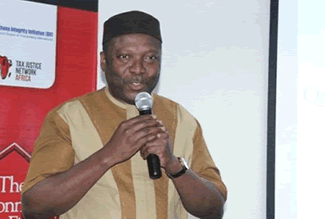Parliament cannot make changes to Legislative Instruments – Opare-Ansah

Parliament cannot make changes to Legislative Instruments (LIs) brought before it by the Executive arm of government,
Mr Frederick Opare-Ansah, the Member of Parliament (MP) for Suhum has said.He said the challenge with LIs was that Parliament actually had very little control over them.
He said when a LI was laid before the House, it required two-third majority of all MPs to vote to annul a particular LI, otherwise it would automatically come into being.
Mr Opare-Ansah made these remarks in his presentation at the 2017 annual World Public Services Day celebration in Accra.
In 2003, the United Nations dedicated June 23 for the commemoration of the annual World Public Services Day.
This year the commemoration focused on the move towards amplifying tax justice campaigns through the unavoidable linkages of socio- economic contract tax payers and government.
The event was organised by the Ghana Integrity Initiative (GII) in partnership with the Tax Justice Coalition and the Public Service International.
Some Acts of Parliament delegate to the executive arm of government the power to make detailed rules and regulations that supplement the parent Act and have the same legal force.
Such rules and regulations are called LIs, Constitutional Instruments (CIs) and Executive Instruments (EIs).
These instruments are not passed directly by Parliament, but are placed by the Executive arm of government before the House for a stipulated period of 21 days, after which they mature.
Mr Opare-Ansah said: “There is a lot of ‘mischief’ that can be created by the use of LIs, unless you really have a very compelling reasons why a particular Legislative Instrument or Constitutional Instrument or Executive Instrument should not come into being, it will be very difficult to stop it.
“Remember that no one side of the House has third-majority. And so if it is the policy of government to have something done, first of all the minority with their rare numbers can’t begin to oppose it and then the majority also do not have the two-thirds majority. Anytime we have LIs and CIs coming before the House, it is a very difficult situation.”
Mr Opare-Ansah, who is also a Member of the African Parliamentarians Network on Illicit Financial Flows and Tax (APNIFFT), said the Network had the desire and commitment to spearhead the fight against illicit financial flows in Africa.
He said Association’s main aim was to provide a platform for African legislators to undertake sustained advocacy – related dialogue and debate in a simplified manner on IFFs, tax governance and domestic resource mobilisation.
Mrs Linda Ofori-Kwafo, the Executive Director of the GII, said the commemoration of the World Public Services Day was to deepen workers and the public’s understanding of tax justice and its direct connection with efficient delivery of public services.
She said there was a global push for multi-national companies to pay their fair share of tax to fund quality public services and sustainable economic development.
Source: GNA
